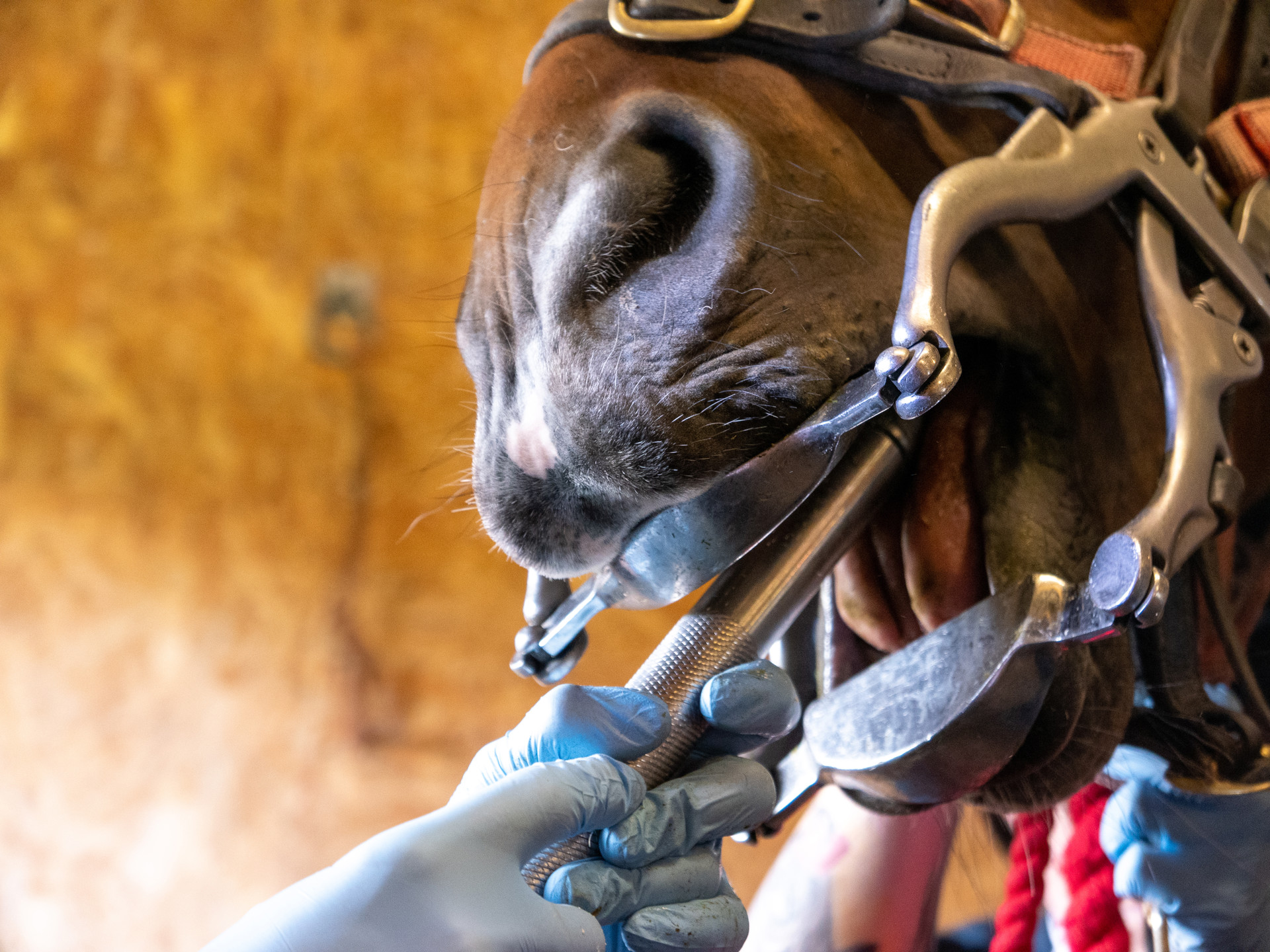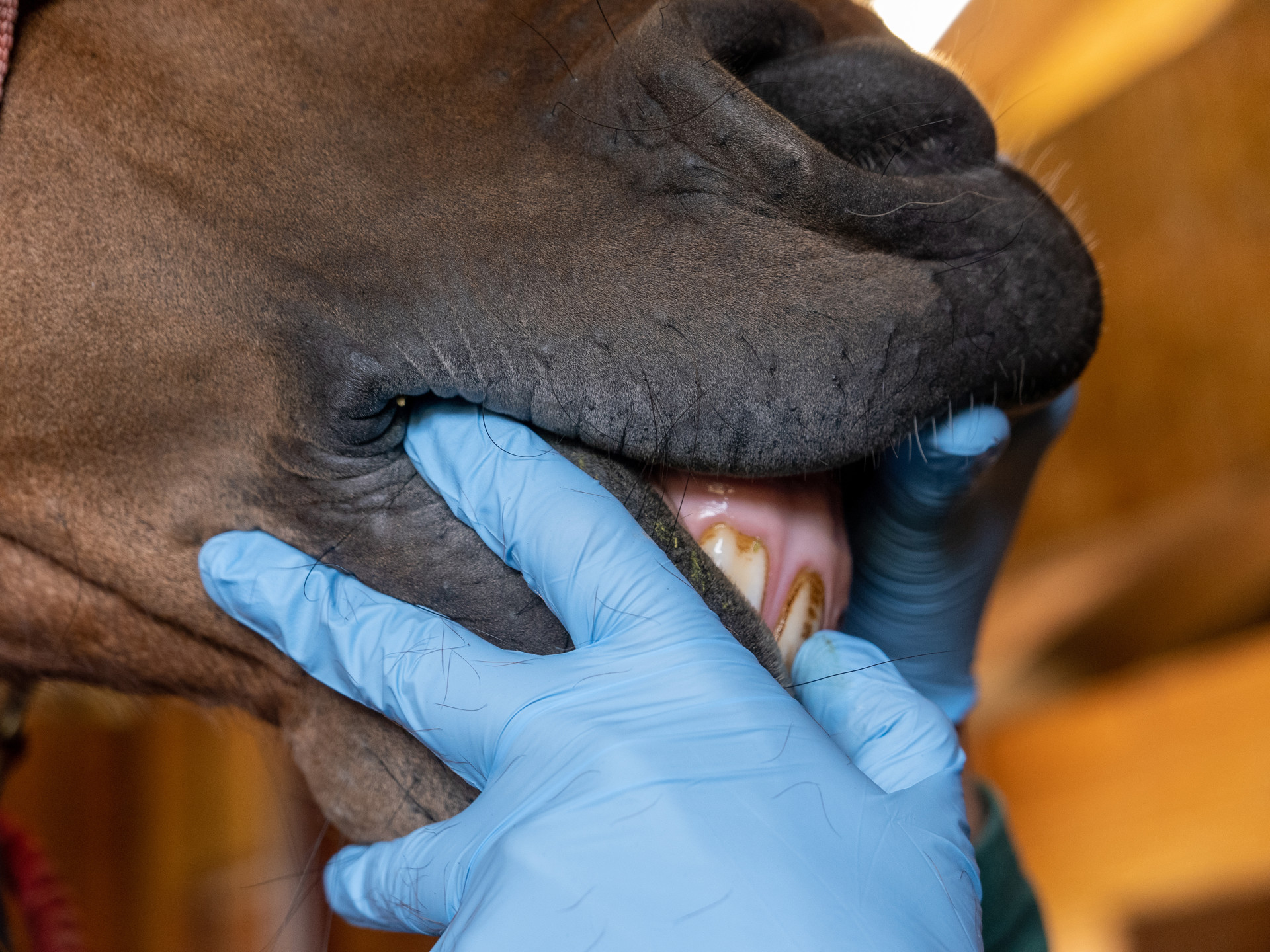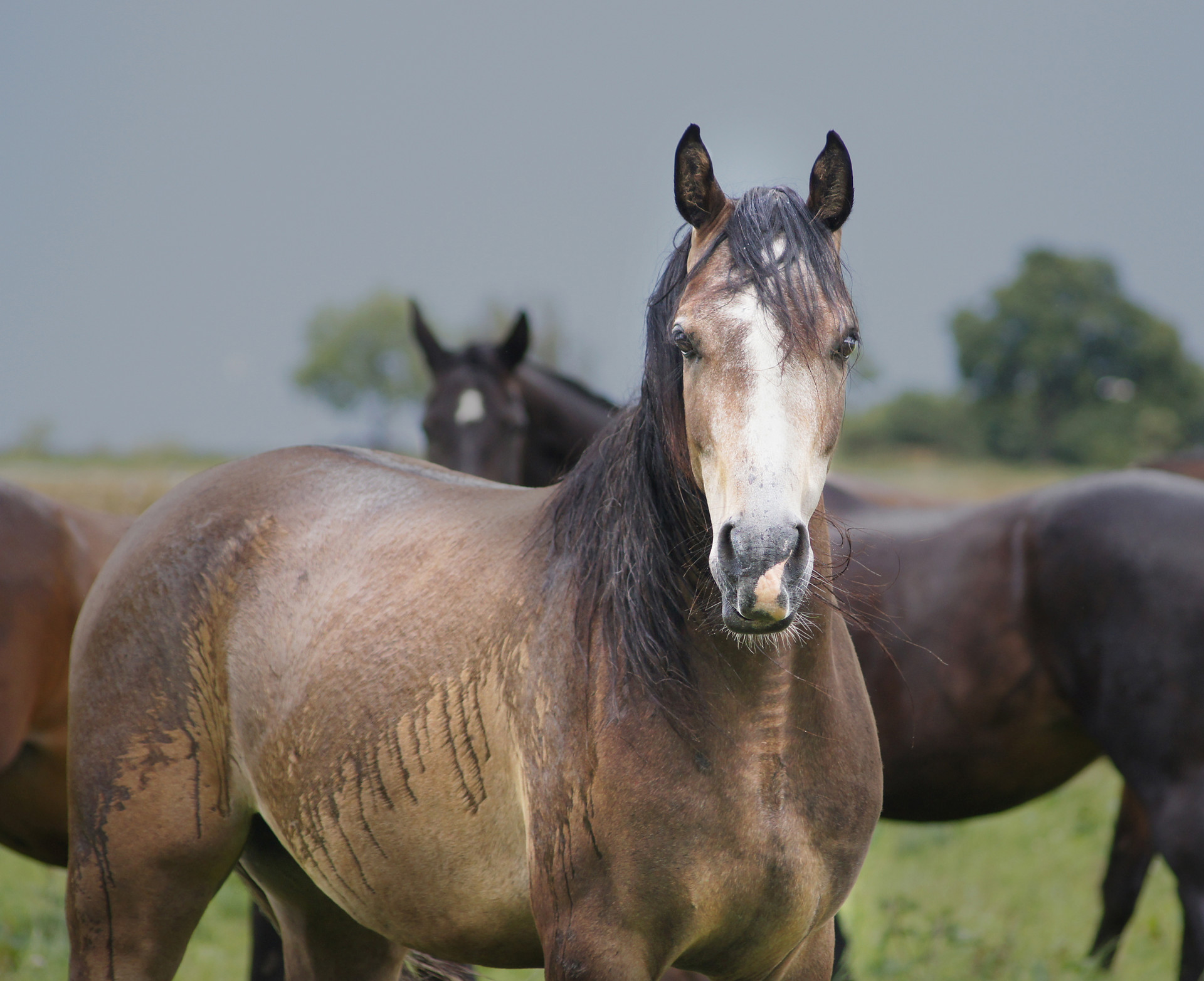
Equine Dentistry
Complete Equine Dentistry Service
At North West Equine Vets we are able to provide a complete dentistry service, from routine rasping to surgical correction of serious dental problems. Our team of equine vets are all experienced and well-equipped, with modern hand tools and battery-operated motorised tools to smooth sharp enamel points and reduce overgrowths. As vets, we are able to sedate our patients to allow a thorough and safe dental examination and facilitate any treatment needed. Sedation is very safe and well tolerated by the majority of horses, regardless of their age.
Your horse's teeth should be examined at least once every year. Call reception to discuss your horse's dental plan.
Why is Dentistry Required?
Horses have evolved teeth which erupt continually throughout their lives. Modern diets, management and the requirement to wear tack and bits add to the challenges a horse would face in the wild.
Many horses will suffer silently from dental disease so it is important to have regular check-ups to ensure their mouth is healthy. Try to ensure your horse has 1-2 dental check-ups per year.
All horses will develop sharp enamel points on their teeth which require rasping to avoid discomfort during eating or when they wear a bit. Some horses have teeth which don’t wear down evenly and need additional rasping to prevent overgrowth.


How can you recognise dental problems?
Even in horses with moderately severe mouth lacerations and dental disease, the desire to eat will be maintained and the problems may not be obvious without a full dental examination.Signs of dental problems include:
- Dropping food (quidding)
- Weight loss
- Bad odour
- Biting problems or evasion
- Head tilt or shaking
- Facial swelling / nasal discharge
- Colic or choke
My Horse's First Dental Check
Because young horses’ teeth are often very sharp, we advise first examining a horse's teeth shortly before they are bitted.This way their first experience of a bit is a comfortable one, setting them on the right track for the future.
We also check for wolf teeth, loose caps or any dental malocclusions at this time.
